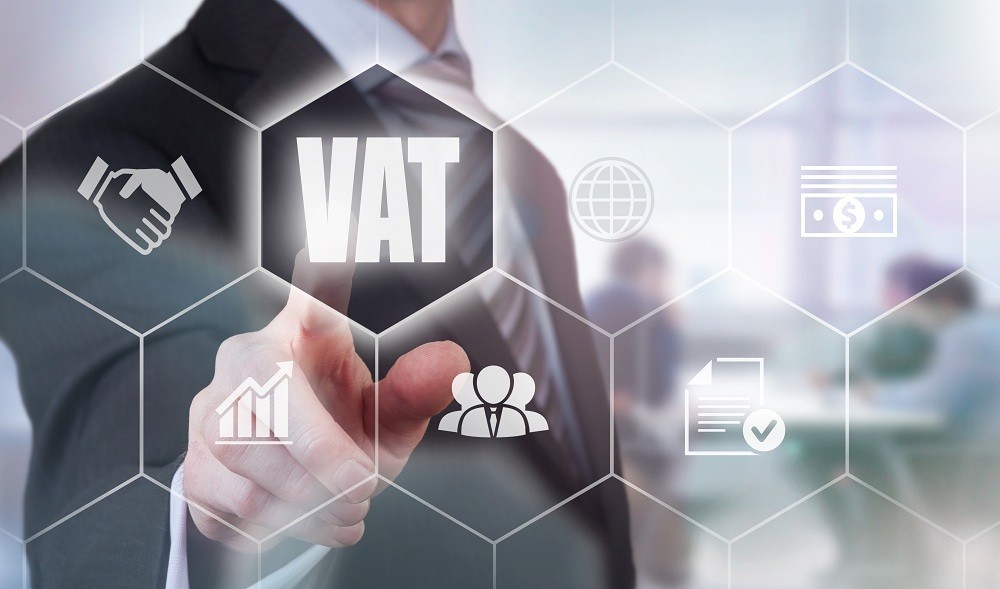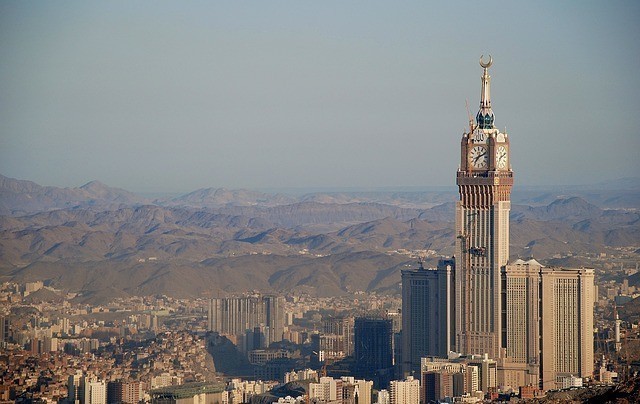The VAT FAQs section was updated on the official website on 9th July by the United Arab Emirates (UAE) Ministry of Finance (MOF. It provides simplified explanation to all your VAT questions.
The update provides useful written confirmation on a number of points discussed at the MOF VAT awareness sessions.
How can one object to the decisions of the Authority?
Any person will be able to object a decision of the Federal Tax Authority.
As a first step, the person shall request the FTA to reconsider its decision. Such request of re-consideration has to be made within 20 business days from the date the person was notified of the original decision of the FTA, and the FTA will have 20 business days from receipt of such application to provide its revised decision.
If the person is not satisfied with the revised decision of the FTA, it will be able to object to the Tax Disputes Resolution Committee which will be set up for these purposes. Objections to the Committee will need to be submitted within 20 business days from the date the person was notified of the FTA’s revised decision, and the person must pay all taxes and penalties subject of objection before objecting to the Committee. The Committee will typically be required to give its decision regarding the objection within 20 business days from its receipt.
As a final step, if the person is not satisfied with the decision of the Committee, the person may challenge its decision before the competent court. The appeal must be made within 20 business days from the date of the appellant being notified of the Committee’s decision
VAT for Businesses
Who can or will be able to register for VAT?
A business must register for VAT if their taxable supplies and imports exceed the mandatory registration threshold of AED 375,000.
Furthermore, a business may choose to register for VAT voluntarily if their supplies and imports are less than the mandatory registration threshold, but exceed the voluntary registration threshold of AED 187,500.
Similarly, a business may register voluntarily if their expenses exceed the voluntary registration threshold. This latter opportunity to register voluntarily is designed to enable start-up businesses with no turnover to register for VAT.
How long must a taxable person retain VAT invoices for?
Any taxable person must retain VAT invoices issued and received for a minimum of 5 years.
How should a business determine the place of supply?
The place of supply will determine whether a supply is made within the UAE (in which case the UAE VAT law will apply), or outside the UAE for VAT purposes.
For a supply of goods, the place of supply should be the location of goods when the supply takes place with special rules for certain categories of supplies (e.g. water and energy, cross border supplies).
For the supply of services, the place of supply should be where the supplier is established with special rules for certain categories of supplies (e.g. cross border supplies between businesses).
Can businesses offset customs duty against VAT payments?
VAT shall be payable in addition to the custom duties paid by the importer of the goods and cannot be deducted. VAT shall be computed on the value that includes the customs duties.
How will real estate be treated?
The VAT treatment of real estate will depend on whether it is a commercial or residential property.
Supplies (including sales or leases) of commercial properties will be taxable at the standard VAT rate (i.e 5%).
On the other hand, supplies of residential properties will generally be exempt from VAT. This will ensure that VAT would not constitute an irrecoverable cost to persons who buy their own properties. In order to ensure that real estate developers can recover VAT on construction of residential properties, the first supply of residential properties within 3 years from their completion will be zero-rated.
What sectors will be zero rated?
VAT will be charged at 0% in respect of the following main categories of supplies:
- Exports of goods and services to outside the GCC;
- International transportation, and related supplies;
- Supplies of certain sea, air and land means of transportation (such as aircrafts and ships);
- Certain investment grade precious metals (e.g. gold, silver, of 99% purity);
- Newly constructed residential properties, that are supplied for the first time within 3 years of their construction;
- Supply of certain education services, and supply of relevant goods and services;
- Supply of certain Healthcare services, and supply of relevant goods and services.
What sectors will be exempt?
The following categories of supplies will be exempt from VAT:
- The supply of some financial services (clarified in VAT legislation);
- Residential properties;
- Bare land; and
- Local passenger transport
Will there be VAT grouping?
Businesses that satisfy certain requirements covered under the Legislation (such as being resident in the UAE and being related/associated parties) will be able to register as a VAT group. For some businesses, VAT grouping will be a useful tool that would simplify accounting for VAT.
Will there be bad debt relief?
VAT registered businesses will be able to reduce their output tax liability by the amount of VAT that relates to bad debt which has been written off by the VAT registered business. The legislation will include the conditions and limitations concerning the use of this relief.
Will there be a margin scheme?
To avoid double taxation where second hand goods are acquired by a registered person from an unregistered person for the purpose of resale, the VAT-registered person will be able to account for VAT on sales of second hand goods with reference to the difference between the purchase price of the goods and the selling price of the goods (that is, the profit margin). The VAT which must be accounted for by the registered person will be included in the profit margin. The legislation will include the details of the conditions to be met in order to apply this mechanism.
How will partial exemption work?
Where a VAT registered person incurs input tax on its business expenses, this input tax can be recovered in full if it relates to a taxable supply made, or intended to be made, by the registered person. In contrast, where the expense relates to a non-taxable supply (e.g. exempt supplies), the registered person may not recover the input tax paid.
In certain situations, an expense may relate to both taxable and non-taxable supplies made by the registered person (such as activities of the banking sector). In these circumstances, the registered person would need to apportion input tax between the taxable and non-taxable (exempt) supplies.
Businesses will be expected to use input tax (ratio of recoverable to total) as a basis for apportionment in the first instance although there will be the facility to use other methods where they are fair and agreed with the Federal Tax Authority.
What are the cases that would lead to the imposition of penalties?
Penalties will be imposed for non-compliance.
Examples of actions and omissions that may give raise to penalties include:
- A person failing to register when required to do so;
- A person failing to submit a tax return or make a payment within the required period;
- A person failing to keep the records required under the issued tax legislation;
- Tax evasion offences where a person performs a deliberate act or omission with the intention of violating the provisions of the issued tax legislation.
Will there be any special schemes for SMEs?
No special rules are planned for small or medium sized enterprises. However, the FTA will provide materials and resources available for these entities to assist them in their enquiries.
Will there be transitional rules?
Special rules will be provided to deal with various situations that may arise in respect of supplies that span the introduction of VAT. For example:
- Where a payment is received in respect of a supply of goods before the introduction of VAT but the goods are actually delivered after the introduction of VAT, this means that VAT will have to be charged on such supplies. Likewise, special rules will apply with regards to supplies of services spanning the introduction of VAT.
- Where a contract is concluded prior to the introduction of VAT in respect of a supply which is wholly or partly made after the introduction of VAT, and the contract does not contain clauses relating to the VAT treatment of the supply, then consideration for the supply will be treated as inclusive of VAT. There will, however, be special provisions to allow suppliers to charge VAT in situations where their recipient is able to recover their VAT but where there is no VAT clause.
How will insurance be treated?
Generally, insurance (vehicle, medical, etc) will be taxable. Life insurance, however, will be treated as an exempt financial service.
How will financial services be treated?
It is expected that fee based financial services will be taxed but margin based products are likely to be exempt.
How will Islamic finance be treated?
Islamic finance products are consistent with the principles of sharia and therefore often operate differently from financial products that are common internationally.
To ensure that there are no inconsistencies between the VAT treatment of standard financial services and Islamic finance products, the treatment of Islamic finance products will be aligned with the treatment of similar standard financial services.
Can UAE nationals claim VAT?
A scheme will be introduced to allow a UAE national who is not registered for VAT to reclaim VAT paid on goods and services relating to constructing a new residence which will be privately used by the person and his family. This will allow the recovery of VAT on such expenses as contractor’s services and building materials.
How quickly will refunds be released?
Refunds will be made after the receipt of the application and subject to verification checks, with a particular focus on avoiding fraud.
Will FTA issue rulings or provide tax advice?
In the course of its interaction with taxpayers, the FTA may provide its views on various matters in the law. Taxpayers may choose to challenge these views. It should be noted that penalties may be imposed on taxpayers who are found to violate any tax laws and regulations.
Will it be possible to issue cash receipts instead of VAT invoices?
A supplier registered or required to be registered for VAT must issue a valid VAT invoice for the supply. To be considered as a valid VAT invoice, the document must follow a specific format as mentioned in the legislation. In certain situations the supplier may be able to issue a simplified VAT invoice. The conditions for the VAT invoice and the simplified VAT invoice are mentioned legislation.
Will there be any VAT that businesses are not allowed to claim?
VAT will not be deductible in respect of expenses incurred for making non-taxable supplies. Furthermore, input tax cannot be deducted if it is incurred in respect of specific expenses such as entertainment expenses e.g. employee entertainment.
Under which conditions will businesses be allowed to claim VAT incurred on expenses?
VAT on expenses that were incurred by a business can be deducted in the following circumstances:
- The business must be a taxable person (the end consumer cannot claim any input tax refund).
- VAT should have been charged correctly (i.e. unduly charged VAT is not recoverable).
- The business must hold documentation showing the VAT paid (e.g. valid tax invoice).
- The goods or services acquired are used or intended to be used for making taxable supplies.
- VAT input tax refund can be claimed only on the amount paid or intended to be paid before the expiration of 6 months after the agreed date for the payment of the supply.
Will non-residents be required to register for VAT?
Non-residents that make taxable supplies in the UAE will be required to register for VAT unless there is any other UAE resident person who is responsible for accounting for VAT on these supplies. This exclusion may apply, for example, where a UAE business is required to account for VAT under a reverse charge mechanism in respect of a purchase from a non-resident.
Will VAT be paid on imports?
VAT is due on the goods and services purchased from abroad.
In case the recipient in the State is a registered person with the Federal Tax Authority for VAT purposes, VAT would be due on that import using a reverse charge mechanism.
In case the recipient in the State is a non-registered person for VAT purposes, VAT would be paid on import of goods from a place outside the GCC. Such VAT will typically be required to be paid before the goods are released to the person.
How will Government Entities be treated for VAT purposes?
Supplies made by government entities will typically be subject to VAT. This will ensure that government entities are not unfairly advantaged as compared to private businesses.
Certain supplies made by government entities will, however, be excluded from the scope of VAT if they are not in competition with the private sector or where the entity is the sole provider of such supplies. It is likely certain government entities will be entitled to VAT refunds – this is designed to avoid budgeting issues and provide a level playing field between outsourced and insourced activities.
For the supplies provided for government entities, the treatment of such supplies shall depend on the same supply and not on the recipient of the supply. Therefore, if the supply is subject to the standard tax rate, the treatment would remain the same even if it is provided to a government entity.
Will Businesses have to report on their business in each of the Emirates?
It is expected that businesses will need to complete additional information on their VAT returns to report revenues earned in each Emirate. Guidance will be provided to businesses with regards to this.
It is expected that the rules will be relatively straightforward for most businesses and will be based, for example, for B2C transactions, on the location of the transaction (e.g. in a retail environment, the location of the shop).
Will the goods exempt from customs duties also be exempt from VAT?
Not necessarily. Some goods that are imported may be exempt from customs duties but subject to VAT.
Reach us at [email protected] for guidance on impact analysis and assistance in VAT implementation.

























 IMC Group
IMC Group